At the heart of Frontier Nursing University is a talented community of students, alumni, faculty, staff, Couriers and preceptors. Spotlight blogs feature members of our FNU community that are focused on the mission of educating nurse-midwives and nurse practitioners to work with all people, with an emphasis on rural and underserved communities.
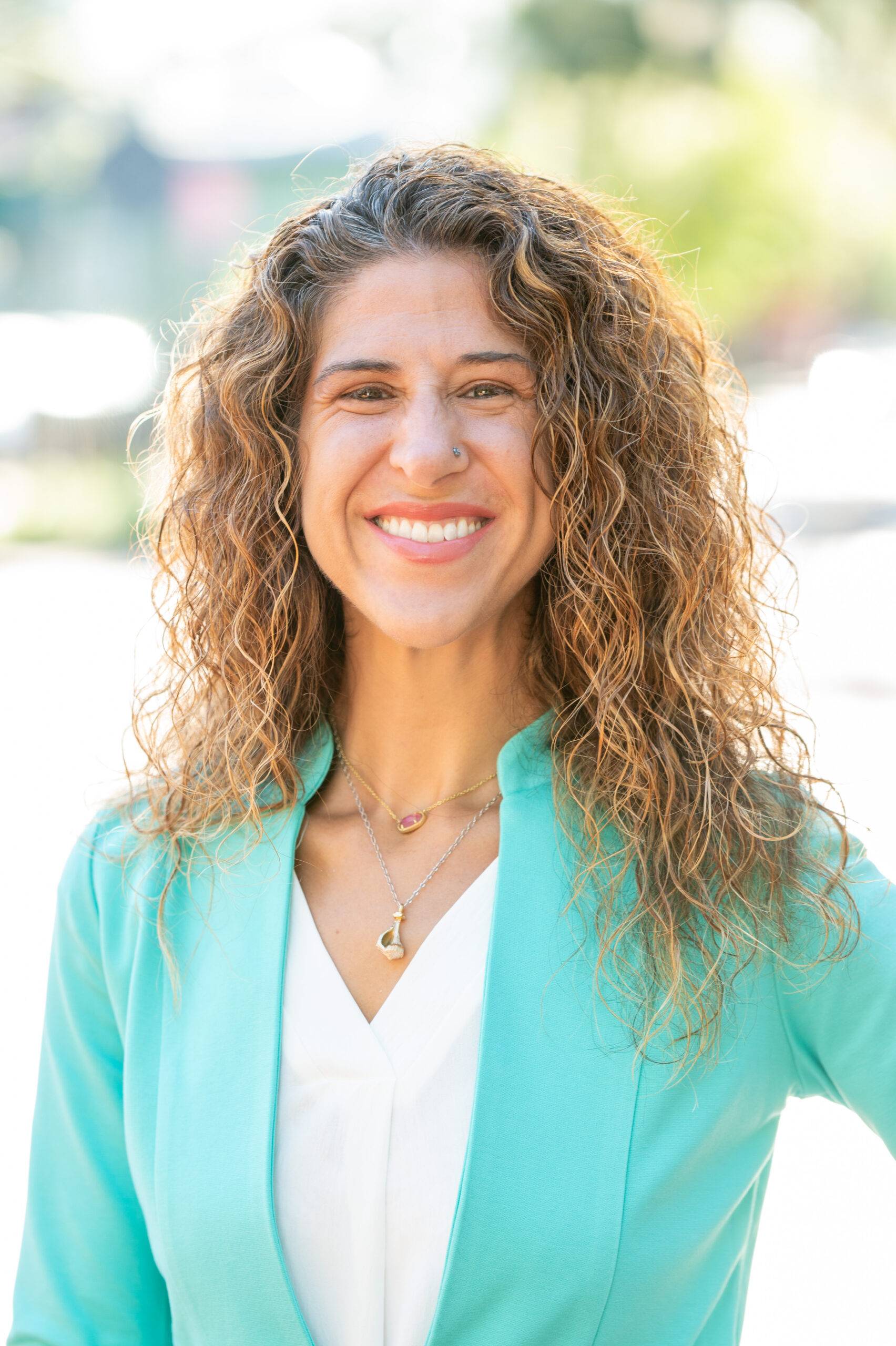
Tanya Baca, DNP, CNM, PMHNP-BC
FNU recognizes the rich histories, cultures, and contributions of Hispanic Americans. We are proud to highlight the stories of our community members who embody the values of resilience, service and leadership. One of those individuals is Tanya Baca, DNP, CNM, PMHNP-BC, who is both an FNU graduate and faculty member.
Dr. Baca’s path in healthcare began at just 15 years old, when a visit with her best friend’s mother, a nurse, sparked a passion for serving others.
“That moment, I knew I wanted to serve other human beings in a way that only some of the world’s population are called to do,” she said.
Soon after, Dr. Baca entered the nursing profession as a CNA in high school, and at just 17, became the youngest member of her LPN program.
“I come from a very underserved population and family,” she said. “I am the first and only member of my immediate and extended family to earn a doctorate degree.”
Her drive to learn and serve others never slowed. Over the years, she has worked in a wide variety of settings, including nursing homes, rehabilitation centers, ambulatory care, and several hospital departments. She has served as a charge nurse, Lead Midwife, and now operates a small LLC for her telehealth services as a psychiatric-mental health nurse practitioner (PMHNP).
Dr. Baca’s personal experience also shaped her path toward midwifery. She said after undergoing a postpartum hemorrhage when she had her first child, she realized how little she knew about her own body and pregnancy. Growing up in what she describes as a “very traditional Hispanic, Catholic family,” topics like menstruation and even breastfeeding were rarely discussed.
“So, in that moment, I knew I was not the only one out there who must have grown up this way, despite culture, race, and religion,” she said. “I knew I wanted to serve women and those who identify as female.”
Dr. Baca emphasized that continuing education and advancement are essential for medical professionals to stay sharp and gain a deeper understanding of policies and procedures. Her decision to pursue a DNP degree reflected her strong commitment to lifelong learning, and she encourages nursing professionals who aspire to teach to strongly consider earning a DNP.
“I wanted to be an educator at FNU to give back to students the way I was taken care of when I was a student at FNU,” she said. “I was challenged, but I was listened to. I felt like the faculty truly wanted us to be successful. That is why I knew that I wanted to have a place as a faculty member to guide and grow further practitioners.”
As a faculty member, she brings that same encouragement and guidance to her students.
“I remind myself that every student comes from a different walk of life, and my job is to help them see their own potential, even when they doubt themselves,” she said. “I use real-life experiences, not just textbooks, so they can see how what they’re learning applies at the bedside or in practice.”
For Dr. Baca, cultural competence is at the heart of quality care.
“Patients come with their own beliefs, values, and experiences, and if we don’t meet them where they are, we fail them,” she said. “Being able to speak their language, understand traditions, or even just show respect for their cultural differences builds trust. Trust is what leads to better outcomes because patients are more willing to open up, follow through, and feel safe in their care.”
Dr. Baca said her own cultural background has made her especially mindful of representation and respect in healthcare.
 “I know firsthand what it feels like to not see yourself represented in healthcare, to have traditions misunderstood, or to feel overlooked,” she said. “That awareness makes me intentional about creating space for students and patients who may feel the same way.”
“I know firsthand what it feels like to not see yourself represented in healthcare, to have traditions misunderstood, or to feel overlooked,” she said. “That awareness makes me intentional about creating space for students and patients who may feel the same way.”
This awareness presents itself both in Dr. Baca’s role as a healthcare provider and in her role as an educator.
“As a provider, I slow down and ask questions that matter to them, not just what the chart asks for. As an educator, I push students to think outside the box, to consider how culture shapes health decisions, and to always approach care with humility and respect,” she said.
Outside of her professional endeavors, Dr. Baca is an avid runner, Peloton enthusiast, world traveler, beach-goer, and loves spending time with her three kids, three doodles, and husband.
Frontier Nursing University honors Dr. Baca’s contributions to nursing, education, and the broader community. Thank you, Dr. Baca, for reminding us that representation matters, cultural competence saves lives, and education has the power to transform not just one life, but many.
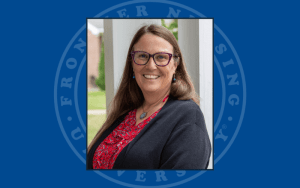
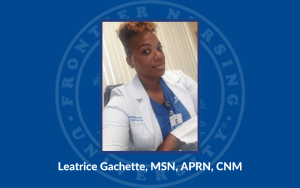
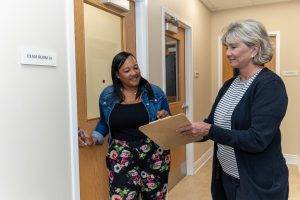
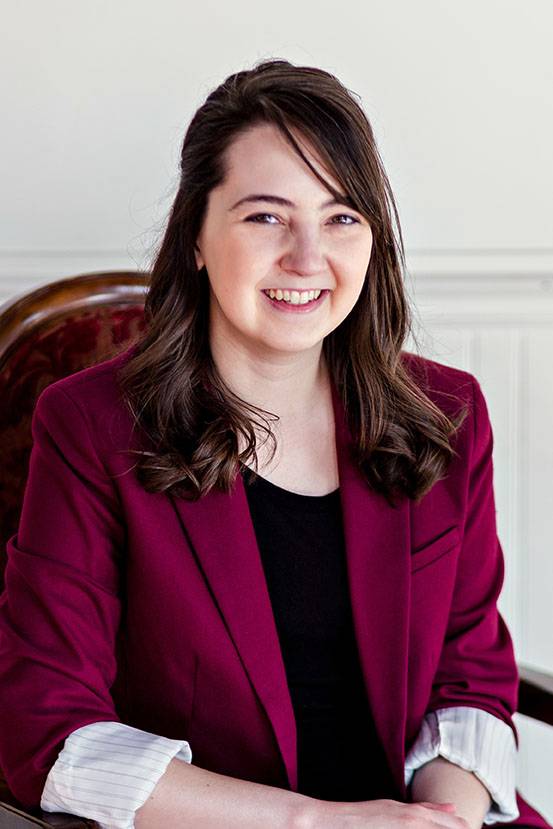 Recognized each year on Oct. 10, World Mental Health Day is an international day for global mental health education, awareness and advocacy against social stigma. When it comes to addressing these issues in the field of healthcare, a robust workforce of well-trained and compassionate
Recognized each year on Oct. 10, World Mental Health Day is an international day for global mental health education, awareness and advocacy against social stigma. When it comes to addressing these issues in the field of healthcare, a robust workforce of well-trained and compassionate 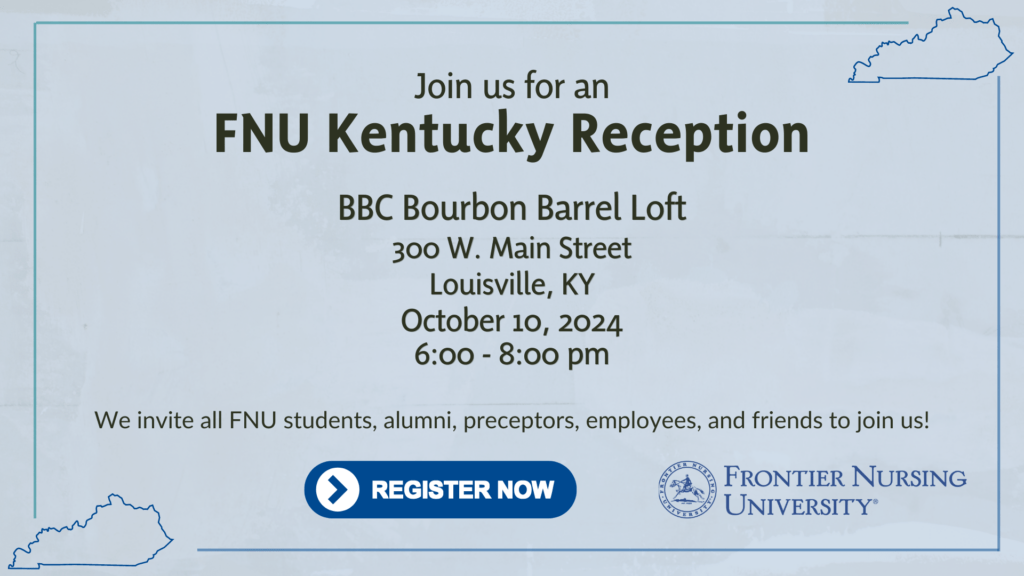
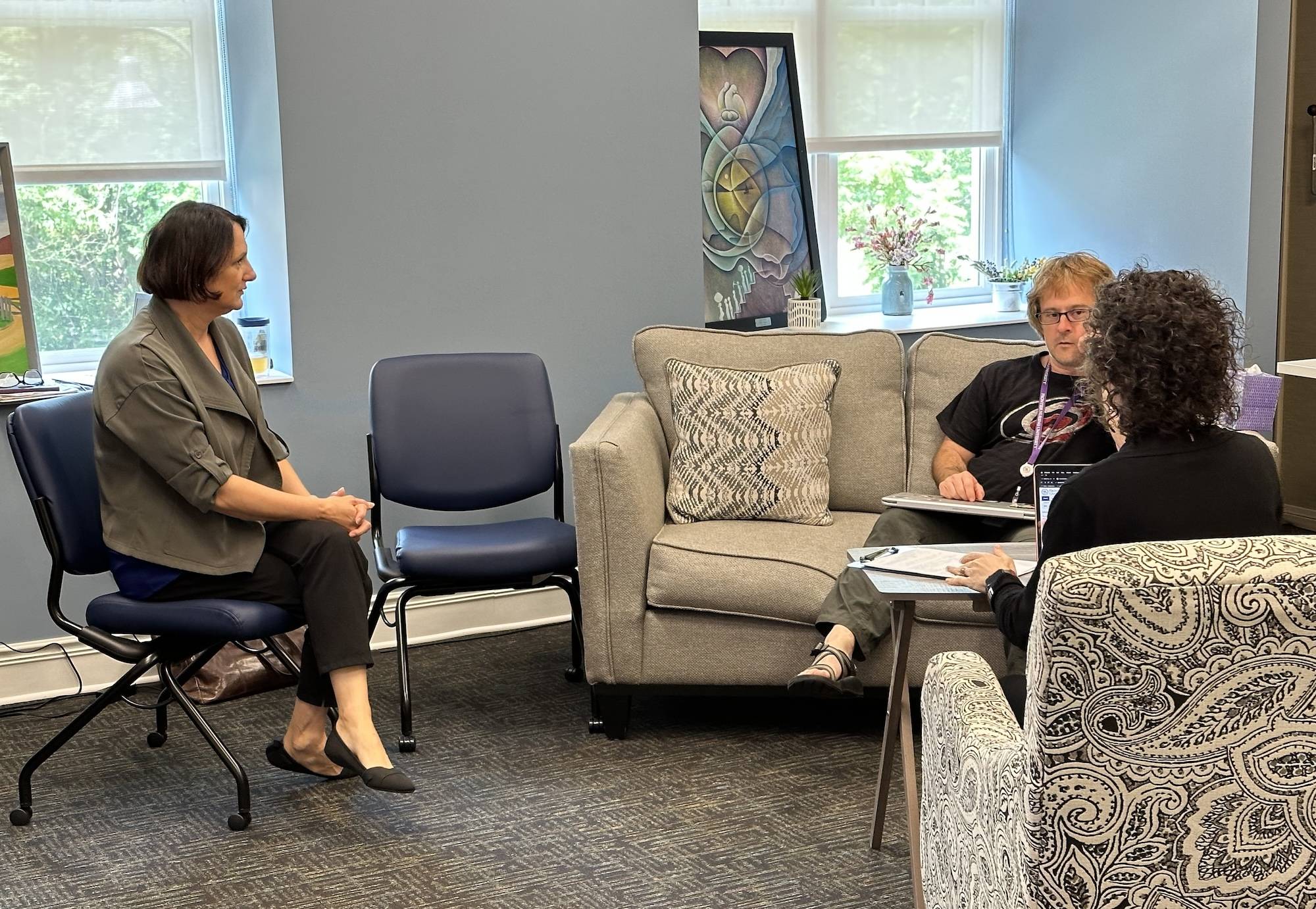
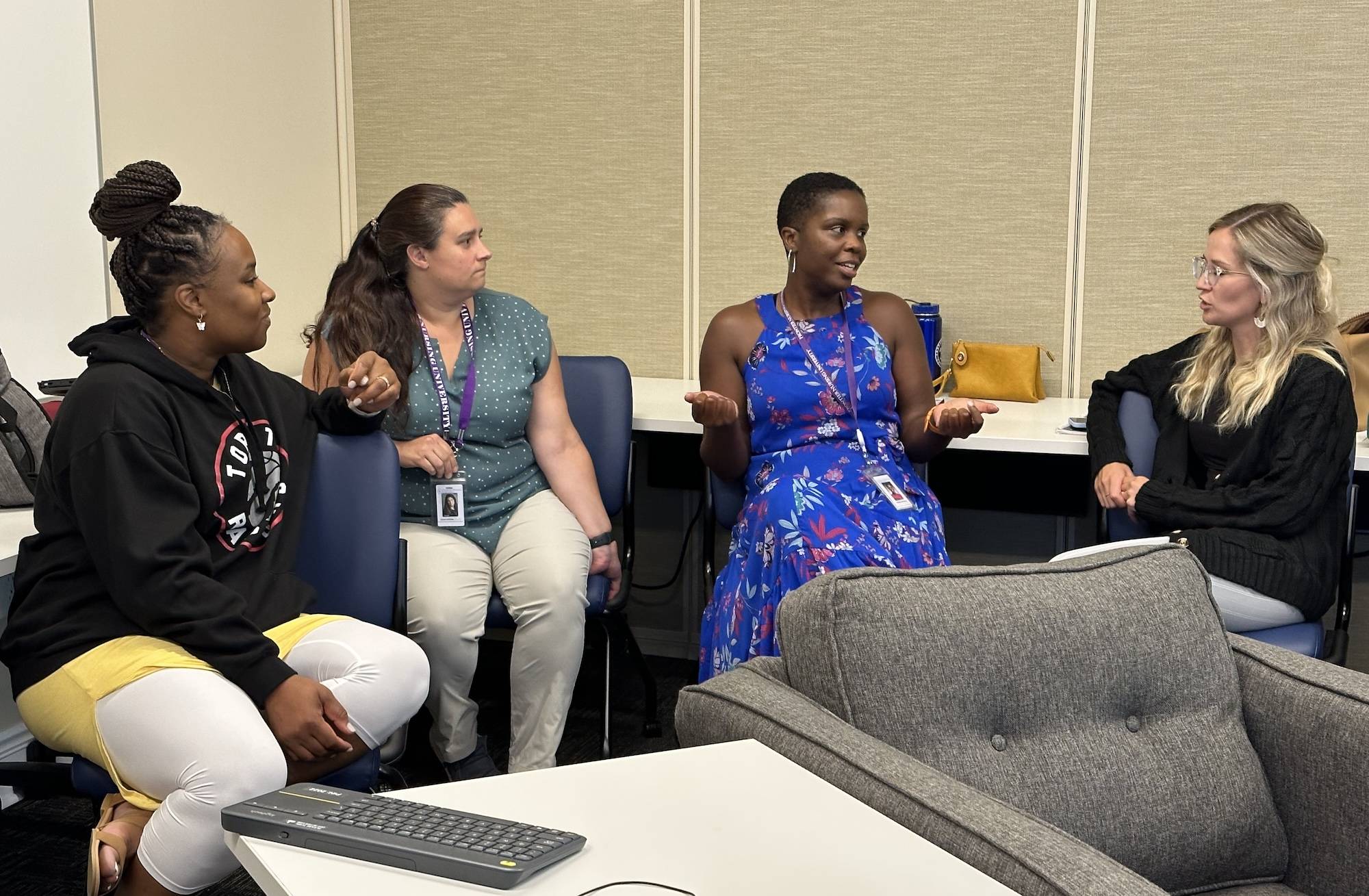
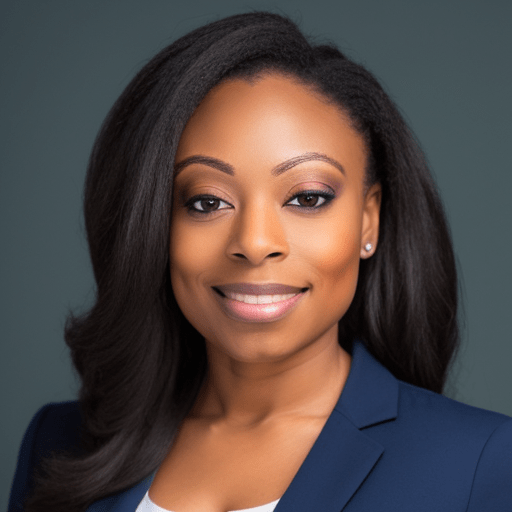 Just a 20-minute drive from the FNU campus, registered nurse Jazmene Landing works at a comprehensive outpatient addiction clinic in Lexington, Kentucky. There, she cares for an underserved population of urban patients who are often stigmatized and overlooked due to addiction and mental health issues.
Just a 20-minute drive from the FNU campus, registered nurse Jazmene Landing works at a comprehensive outpatient addiction clinic in Lexington, Kentucky. There, she cares for an underserved population of urban patients who are often stigmatized and overlooked due to addiction and mental health issues.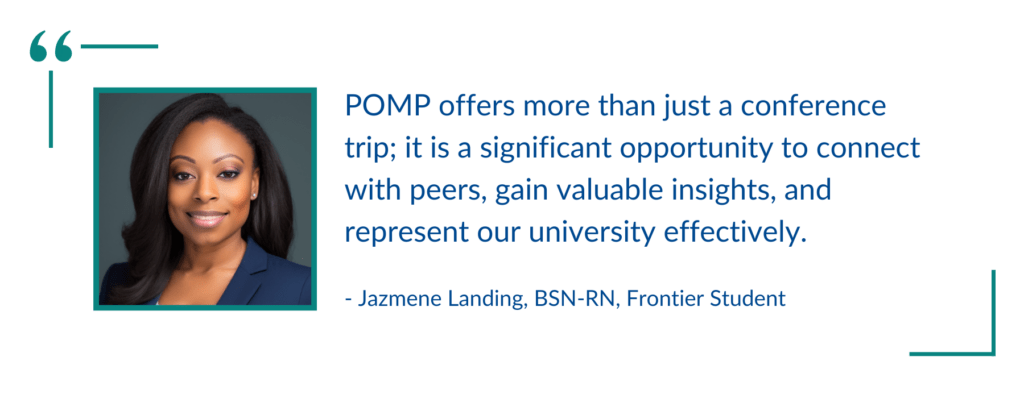
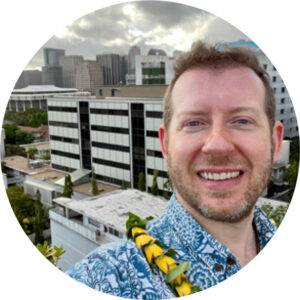
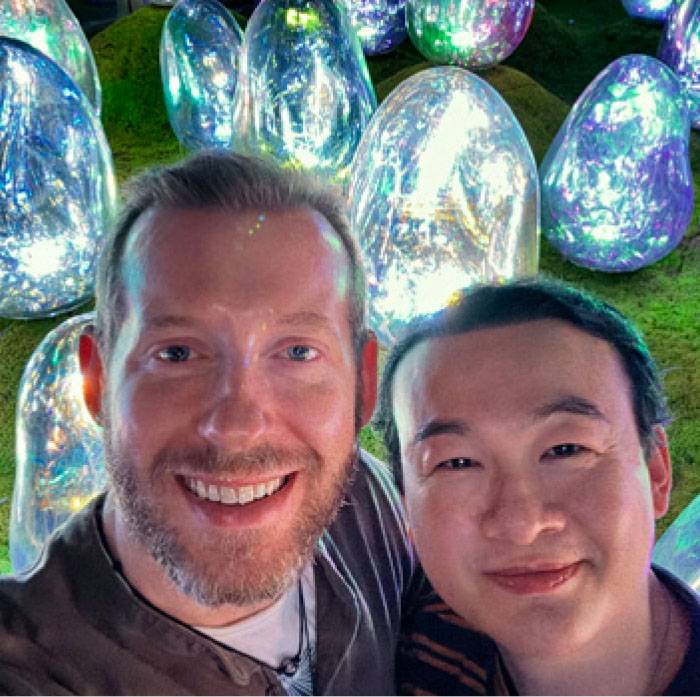
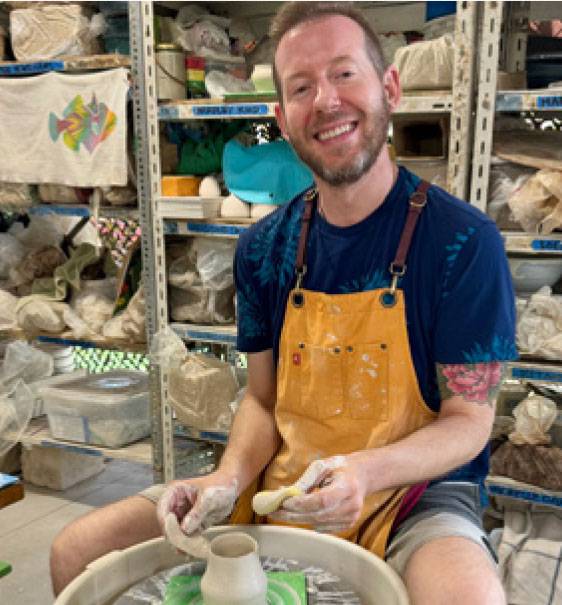 Much of Kuo’s committee work involves ensuring that APRNs are working within their scope of education, certification, and licensure. This, he says, ultimately leads to a better overall healthcare system.
Much of Kuo’s committee work involves ensuring that APRNs are working within their scope of education, certification, and licensure. This, he says, ultimately leads to a better overall healthcare system.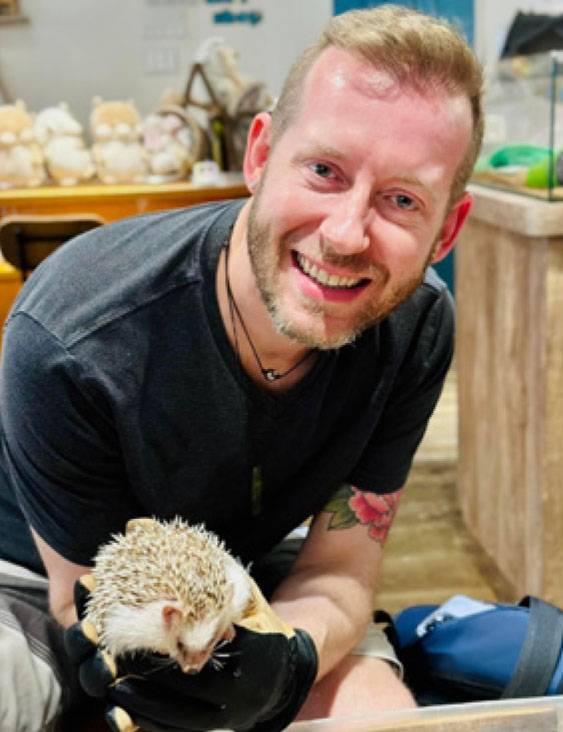 “As I became more involved in the mental health world, I needed to make sure I had the education and training to back that up,” Kuo said. “That’s when I decided to go back to Johns Hopkins. Once I was done with that program, then my work in mental healthcare catapulted. I worked on ways to improve mental healthcare in the workplaces that I was in. I just grew to embrace mental healthcare.”
“As I became more involved in the mental health world, I needed to make sure I had the education and training to back that up,” Kuo said. “That’s when I decided to go back to Johns Hopkins. Once I was done with that program, then my work in mental healthcare catapulted. I worked on ways to improve mental healthcare in the workplaces that I was in. I just grew to embrace mental healthcare.”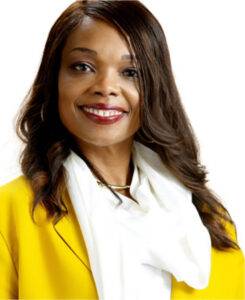
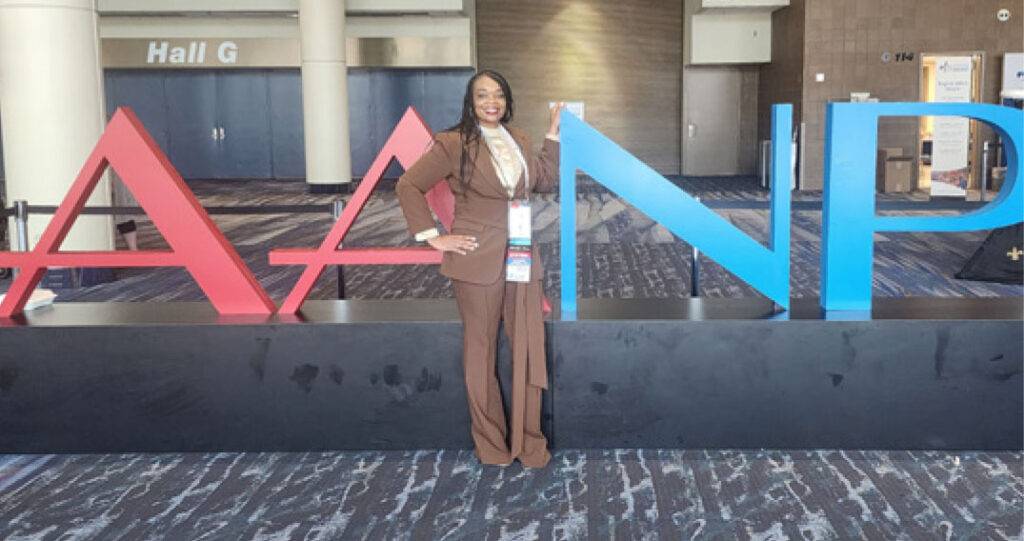 “I started in 2015 with myself and a front desk person,” Hicks said. “By 2020, I had a front desk person and a part-time nurse.”
“I started in 2015 with myself and a front desk person,” Hicks said. “By 2020, I had a front desk person and a part-time nurse.”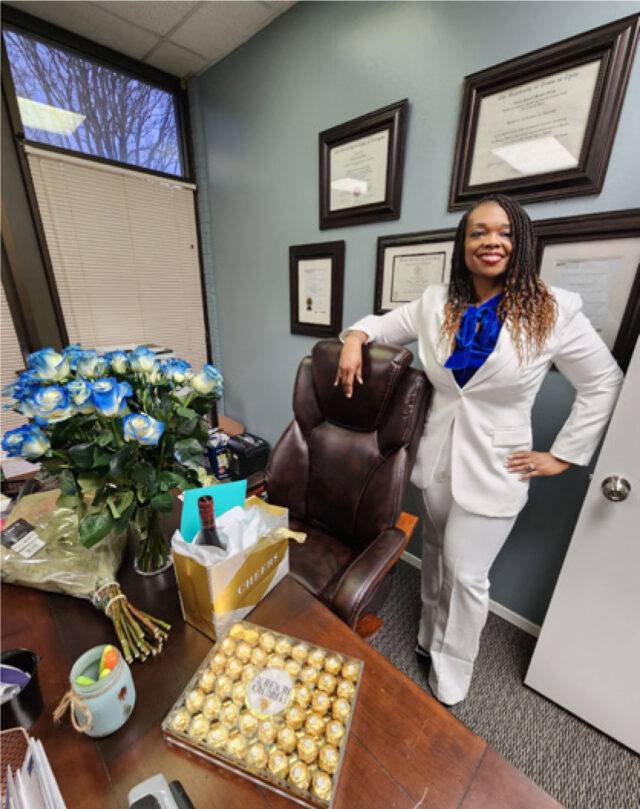 Hicks’ real mom was also a nurse but encouraged her to become a physician. “I told her I wanted to become a nurse because I had watched her and how her colleagues and patients loved her,” Hicks said. “She loved her work. She made me promise that if I wanted to be a nurse, I would go to the top and make an impact.”
Hicks’ real mom was also a nurse but encouraged her to become a physician. “I told her I wanted to become a nurse because I had watched her and how her colleagues and patients loved her,” Hicks said. “She loved her work. She made me promise that if I wanted to be a nurse, I would go to the top and make an impact.”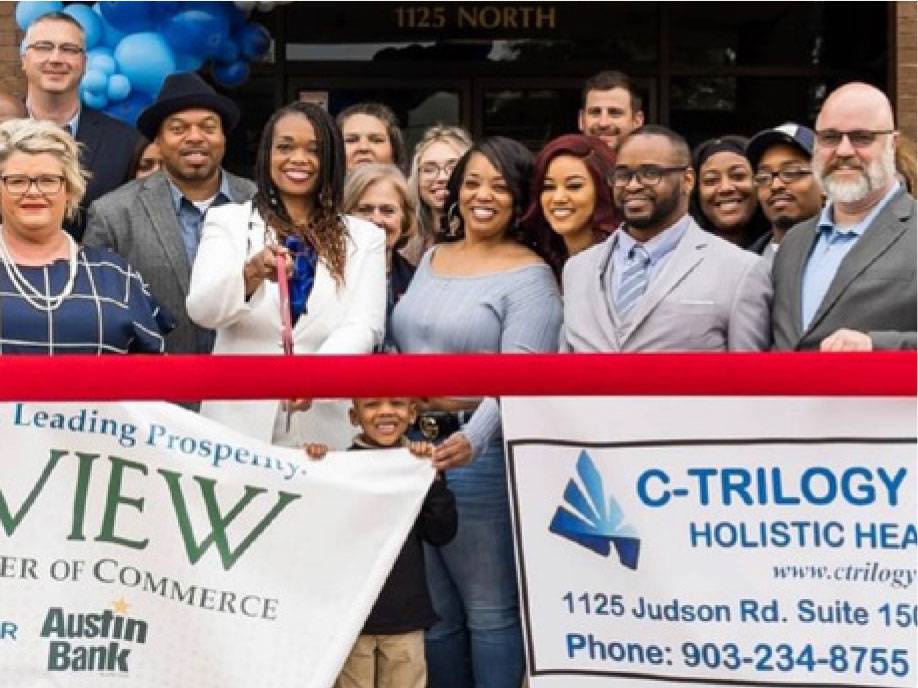 Part of refining her clinic to meet the community's needs included the establishment of C-Trilogy Outreach, a non-profit branch of C-Trilogy, in 2020. This came in response to a growing number of patients, both insured and uninsured, who were presenting with more complex issues during the pandemic.
Part of refining her clinic to meet the community's needs included the establishment of C-Trilogy Outreach, a non-profit branch of C-Trilogy, in 2020. This came in response to a growing number of patients, both insured and uninsured, who were presenting with more complex issues during the pandemic.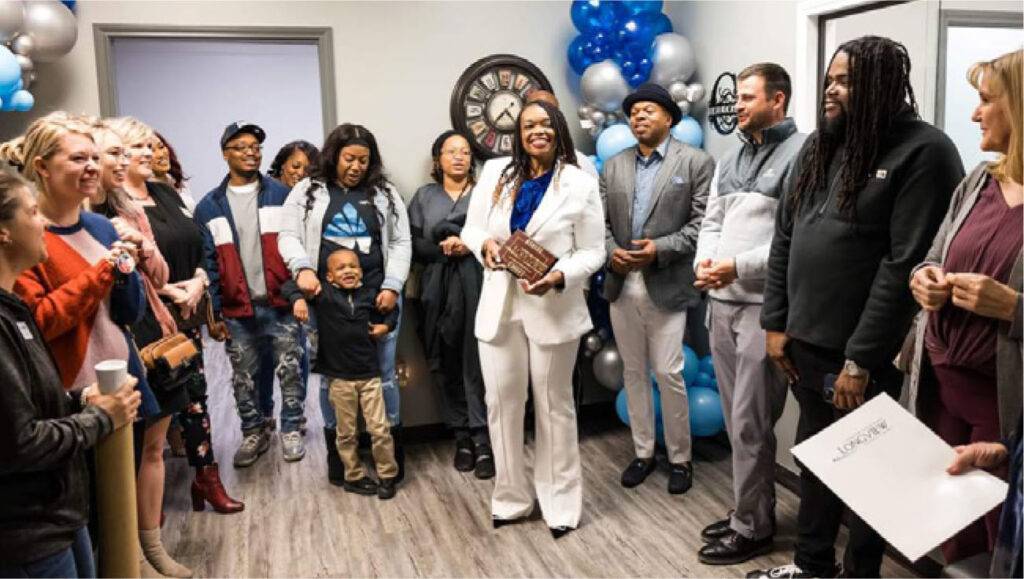 Understanding that C-Trilogy cannot fix the state’s mental healthcare needs alone, Hicks has become a vocal leader in advocating for increased awareness and funding. As a presenter and speaker, she addresses the importance of the social determinants of health in providing individualized and holistic care on a broader scale.
Understanding that C-Trilogy cannot fix the state’s mental healthcare needs alone, Hicks has become a vocal leader in advocating for increased awareness and funding. As a presenter and speaker, she addresses the importance of the social determinants of health in providing individualized and holistic care on a broader scale.
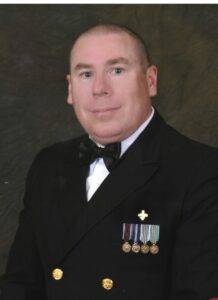
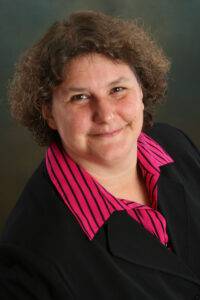

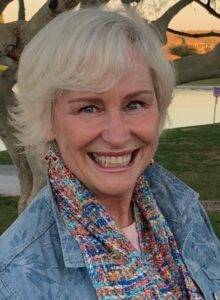
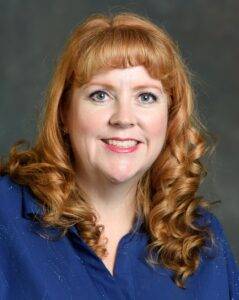
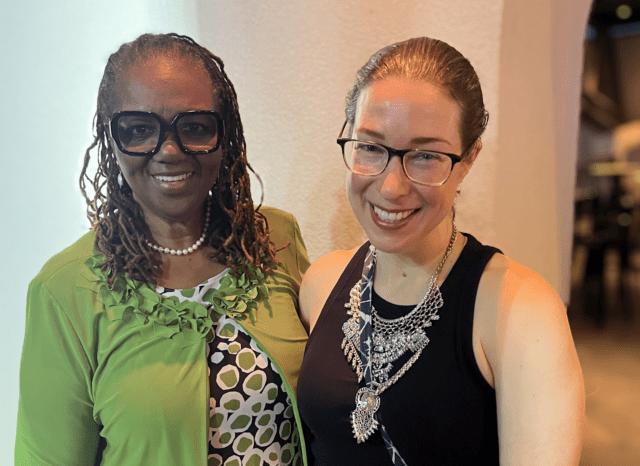
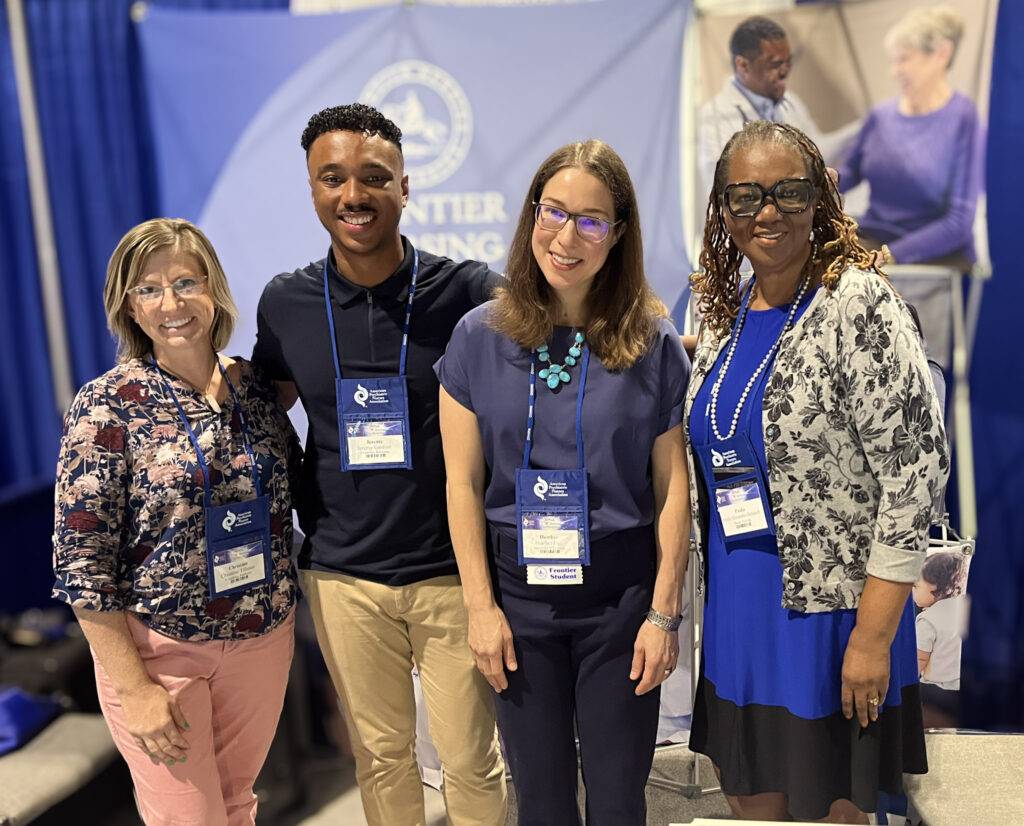




















 Carrie Belin is an experienced board-certified Family Nurse Practitioner and a graduate of the Johns Hopkins DNP program, Johns Hopkins Bloomberg School of Public Health, Georgetown University School of Nursing, and Johns Hopkins School of Nursing. She has also completed fellowships at Georgetown and the University of California Irvine.
Carrie Belin is an experienced board-certified Family Nurse Practitioner and a graduate of the Johns Hopkins DNP program, Johns Hopkins Bloomberg School of Public Health, Georgetown University School of Nursing, and Johns Hopkins School of Nursing. She has also completed fellowships at Georgetown and the University of California Irvine. Angie has been a full-scope midwife since 2009. She has experience in various birth settings including home, hospital, and birth centers. She is committed to integrating the midwifery model of care in the US. She completed her master’s degree in nurse-midwifery at Frontier Nursing University (FNU) and her Doctorate at Johns Hopkins University. She currently serves as the midwifery clinical faculty at FNU. Angie is motivated by the desire to improve the quality of healthcare and has led quality improvement projects on skin-to-skin implementation, labor induction, and improving transfer of care practices between hospital and community midwives. In 2017, she created a short film on skin-to-skin called
Angie has been a full-scope midwife since 2009. She has experience in various birth settings including home, hospital, and birth centers. She is committed to integrating the midwifery model of care in the US. She completed her master’s degree in nurse-midwifery at Frontier Nursing University (FNU) and her Doctorate at Johns Hopkins University. She currently serves as the midwifery clinical faculty at FNU. Angie is motivated by the desire to improve the quality of healthcare and has led quality improvement projects on skin-to-skin implementation, labor induction, and improving transfer of care practices between hospital and community midwives. In 2017, she created a short film on skin-to-skin called 










 Justin C. Daily, BSN, RN, has ten years of experience in nursing. At the start of his nursing career, Justin worked as a floor nurse on the oncology floor at St. Francis. He then spent two years as the Director of Nursing in a small rural Kansas hospital before returning to St. Francis and the oncology unit. He has been in his current position as the Chemo Nurse Educator for the past four years. He earned an Associate in Nurse from Hutchinson Community College and a Bachelor of Science in Nursing from Bethel College.
Justin C. Daily, BSN, RN, has ten years of experience in nursing. At the start of his nursing career, Justin worked as a floor nurse on the oncology floor at St. Francis. He then spent two years as the Director of Nursing in a small rural Kansas hospital before returning to St. Francis and the oncology unit. He has been in his current position as the Chemo Nurse Educator for the past four years. He earned an Associate in Nurse from Hutchinson Community College and a Bachelor of Science in Nursing from Bethel College. Brandy Jackson serves as the Director of Undergraduate Nursing Programs and Assistant Educator at Wichita State University and Co-Director of Access in Nursing. Brandy is a seasoned educator with over 15 years of experience. Before entering academia, Brandy served in Hospital-based leadership and Critical Care Staff nurse roles. Brandy is passionate about equity in nursing education with a focus on individuals with disabilities. Her current research interests include accommodations of nursing students with disabilities in clinical learning environments and breaking down barriers for historically unrepresented individuals to enter the nursing profession. Brandy is also actively engaged in Interprofessional Education development, creating IPE opportunities for faculty and students at Wichita State. Brandy is an active member of Wichita Women for Good and Soroptimist, with the goal to empower women and girls. Brandy is a TeamSTEPPS master trainer. She received the DASIY Award for Extraordinary Nursing Faculty in 2019 at Wichita State University.
Brandy Jackson serves as the Director of Undergraduate Nursing Programs and Assistant Educator at Wichita State University and Co-Director of Access in Nursing. Brandy is a seasoned educator with over 15 years of experience. Before entering academia, Brandy served in Hospital-based leadership and Critical Care Staff nurse roles. Brandy is passionate about equity in nursing education with a focus on individuals with disabilities. Her current research interests include accommodations of nursing students with disabilities in clinical learning environments and breaking down barriers for historically unrepresented individuals to enter the nursing profession. Brandy is also actively engaged in Interprofessional Education development, creating IPE opportunities for faculty and students at Wichita State. Brandy is an active member of Wichita Women for Good and Soroptimist, with the goal to empower women and girls. Brandy is a TeamSTEPPS master trainer. She received the DASIY Award for Extraordinary Nursing Faculty in 2019 at Wichita State University.  Dr. Sabrina Ali Jamal-Eddine is an Arab-disabled queer woman of color with a PhD in Nursing and an interdisciplinary certificate in Disability Ethics from the University of Illinois Chicago (UIC). Dr. Jamal-Eddine’s doctoral research explored spoken word poetry as a form of critical narrative pedagogy to educate nursing students about disability, ableism, and disability justice. Dr. Jamal-Eddine now serves as a Postdoctoral Research Associate in UIC’s Department of Disability and Human Development and serves on the Board of Directors of the National Organization of Nurses with Disabilities (NOND). During her doctoral program, Sabrina served as a Summer Fellow at a residential National Endowment of the Humanities (NEH) Summer Institute at Arizona State University (2023), a summer fellow at Andrew W. Mellon’s National Humanities Without Walls program at University of Michigan (2022), a Summer Research Fellow at UC Berkeley’s Othering & Belonging Institute (2021), and an Illinois Leadership Education in Neurodevelopmental and related Disabilities (LEND) trainee (2019-2020).
Dr. Sabrina Ali Jamal-Eddine is an Arab-disabled queer woman of color with a PhD in Nursing and an interdisciplinary certificate in Disability Ethics from the University of Illinois Chicago (UIC). Dr. Jamal-Eddine’s doctoral research explored spoken word poetry as a form of critical narrative pedagogy to educate nursing students about disability, ableism, and disability justice. Dr. Jamal-Eddine now serves as a Postdoctoral Research Associate in UIC’s Department of Disability and Human Development and serves on the Board of Directors of the National Organization of Nurses with Disabilities (NOND). During her doctoral program, Sabrina served as a Summer Fellow at a residential National Endowment of the Humanities (NEH) Summer Institute at Arizona State University (2023), a summer fellow at Andrew W. Mellon’s National Humanities Without Walls program at University of Michigan (2022), a Summer Research Fellow at UC Berkeley’s Othering & Belonging Institute (2021), and an Illinois Leadership Education in Neurodevelopmental and related Disabilities (LEND) trainee (2019-2020). Vanessa Cameron works for Vanderbilt University Medical Center in Nursing Education & Professional Development. She is also attending George Washington University and progressing towards a PhD in Nursing with an emphasis on ableism in nursing. After becoming disabled in April 2021, Vanessa’s worldview and perspective changed, and a recognition of the ableism present within healthcare and within the culture of nursing was apparent. She has been working since that time to provide educational foundations for nurses about disability and ableism, provide support for fellow disabled nursing colleagues, and advocate for the disabled community within healthcare settings to reduce disparities.
Vanessa Cameron works for Vanderbilt University Medical Center in Nursing Education & Professional Development. She is also attending George Washington University and progressing towards a PhD in Nursing with an emphasis on ableism in nursing. After becoming disabled in April 2021, Vanessa’s worldview and perspective changed, and a recognition of the ableism present within healthcare and within the culture of nursing was apparent. She has been working since that time to provide educational foundations for nurses about disability and ableism, provide support for fellow disabled nursing colleagues, and advocate for the disabled community within healthcare settings to reduce disparities. Dr. Lucinda Canty is a certified nurse-midwife, Associate Professor of Nursing, and Director of the Seedworks Health Equity in Nursing Program at the University of Massachusetts Amherst. She earned a bachelor’s degree in nursing from Columbia University, a master’s degree from Yale University, specializing in nurse-midwifery, and a PhD from the University of Connecticut. Dr. Canty has provided reproductive health care for over 29 years. Her research interests include the prevention of maternal mortality and severe maternal morbidity, reducing racial and ethnic health disparities in reproductive health, promoting diversity in nursing, and eliminating racism in nursing and midwifery.
Dr. Lucinda Canty is a certified nurse-midwife, Associate Professor of Nursing, and Director of the Seedworks Health Equity in Nursing Program at the University of Massachusetts Amherst. She earned a bachelor’s degree in nursing from Columbia University, a master’s degree from Yale University, specializing in nurse-midwifery, and a PhD from the University of Connecticut. Dr. Canty has provided reproductive health care for over 29 years. Her research interests include the prevention of maternal mortality and severe maternal morbidity, reducing racial and ethnic health disparities in reproductive health, promoting diversity in nursing, and eliminating racism in nursing and midwifery. Dr. Lisa Meeks is a distinguished scholar and leader whose unwavering commitment to inclusivity and excellence has significantly influenced the landscape of health professions education and accessibility. She is the founder and executive director of the DocsWithDisabilities Initiative and holds appointments as an Associate Professor in the Departments of Learning Health Sciences and Family Medicine at the University of Michigan.
Dr. Lisa Meeks is a distinguished scholar and leader whose unwavering commitment to inclusivity and excellence has significantly influenced the landscape of health professions education and accessibility. She is the founder and executive director of the DocsWithDisabilities Initiative and holds appointments as an Associate Professor in the Departments of Learning Health Sciences and Family Medicine at the University of Michigan. Dr. Nikia Grayson, DNP, MSN, MPH, MA, CNM, FNP-C, FACNM (she/her) is a trailblazing force in reproductive justice, blending her expertise as a public health activist, anthropologist, and family nurse-midwife to champion the rights and health of underserved communities. Graduating with distinction from Howard University, Nikia holds a bachelor’s degree in communications and a master’s degree in public health. Her academic journey also led her to the University of Memphis, where she earned a master’s in medical anthropology, and the University of Tennessee, where she achieved both a master’s in nursing and a doctorate in nursing practice. Complementing her extensive education, she completed a post-master’s certificate in midwifery at Frontier Nursing University.
Dr. Nikia Grayson, DNP, MSN, MPH, MA, CNM, FNP-C, FACNM (she/her) is a trailblazing force in reproductive justice, blending her expertise as a public health activist, anthropologist, and family nurse-midwife to champion the rights and health of underserved communities. Graduating with distinction from Howard University, Nikia holds a bachelor’s degree in communications and a master’s degree in public health. Her academic journey also led her to the University of Memphis, where she earned a master’s in medical anthropology, and the University of Tennessee, where she achieved both a master’s in nursing and a doctorate in nursing practice. Complementing her extensive education, she completed a post-master’s certificate in midwifery at Frontier Nursing University.









 Dr. Tia Brown McNair is the Vice President in the Office of Diversity, Equity, and Student Success and Executive Director for the Truth, Racial Healing, and Transformation (TRHT) Campus Centers at the American Association of Colleges and Universities (AAC&U) in Washington, DC. She oversees both funded projects and AAC&U’s continuing programs on equity, inclusive excellence, high-impact practices, and student success. McNair directs AAC&U’s Summer Institutes on High-Impact Practices and Student Success, and TRHT Campus Centers and serves as the project director for several AAC&U initiatives, including the development of a TRHT-focused campus climate toolkit. She is the lead author of From Equity Talk to Equity Walk: Expanding Practitioner Knowledge for Racial Justice in Higher Education (January 2020) and Becoming a Student-Ready College: A New Culture of Leadership for Student Success (July 2016 and August 2022 Second edition).
Dr. Tia Brown McNair is the Vice President in the Office of Diversity, Equity, and Student Success and Executive Director for the Truth, Racial Healing, and Transformation (TRHT) Campus Centers at the American Association of Colleges and Universities (AAC&U) in Washington, DC. She oversees both funded projects and AAC&U’s continuing programs on equity, inclusive excellence, high-impact practices, and student success. McNair directs AAC&U’s Summer Institutes on High-Impact Practices and Student Success, and TRHT Campus Centers and serves as the project director for several AAC&U initiatives, including the development of a TRHT-focused campus climate toolkit. She is the lead author of From Equity Talk to Equity Walk: Expanding Practitioner Knowledge for Racial Justice in Higher Education (January 2020) and Becoming a Student-Ready College: A New Culture of Leadership for Student Success (July 2016 and August 2022 Second edition).